Disclosure: Meeple Mountain received a free copy of this product in exchange for an honest, unbiased review. This review is not intended to be an endorsement.
I’m not sure I’m ready to review Potato Man. I’ve played it five or six times now, with varying combinations of repeat and new players. That’s usually enough. That’s often significantly more than enough, to be frank. In this case, though, I cannot come to a conclusion. My experiments yield consistently mixed results.
What I can’t figure out is why.
How to Bake a Potato
(This review assumes familiarity with the fundamentals of trick-taking. If you aren’t well-versed in the genre, no worries! Take a look at the section titled “What We Talk About When We Talk About Trick-Taking” in my review of Cat in the Box.)
Potato Man is a trick-taking game for 3-4 players. The deck consists of four suits, each featuring either a superhero or a Loaded Potato Monster. (Feed me enough loaded potatoes and I turn into one, too.) The immediate hook is excellent: you are not allowed to follow. If a suit is already in the trick, nobody else can play it.
The player who played the highest-value card, regardless of suit, wins the trick. Not all suits are created equal. Each has a different distribution of values. Yellow, the weakest suit, covers 1-13. Red, the strongest, goes from 6-18. The winning player takes a scoring card that corresponds to the suit of the card with which they won. This sounds lame, right? If you have a hand full of red cards, you’ll win the game. Well, if you win with a red card, you only get one point. If you win with a yellow, which requires a bit of luck and a bit of smart playing, you snag four points.
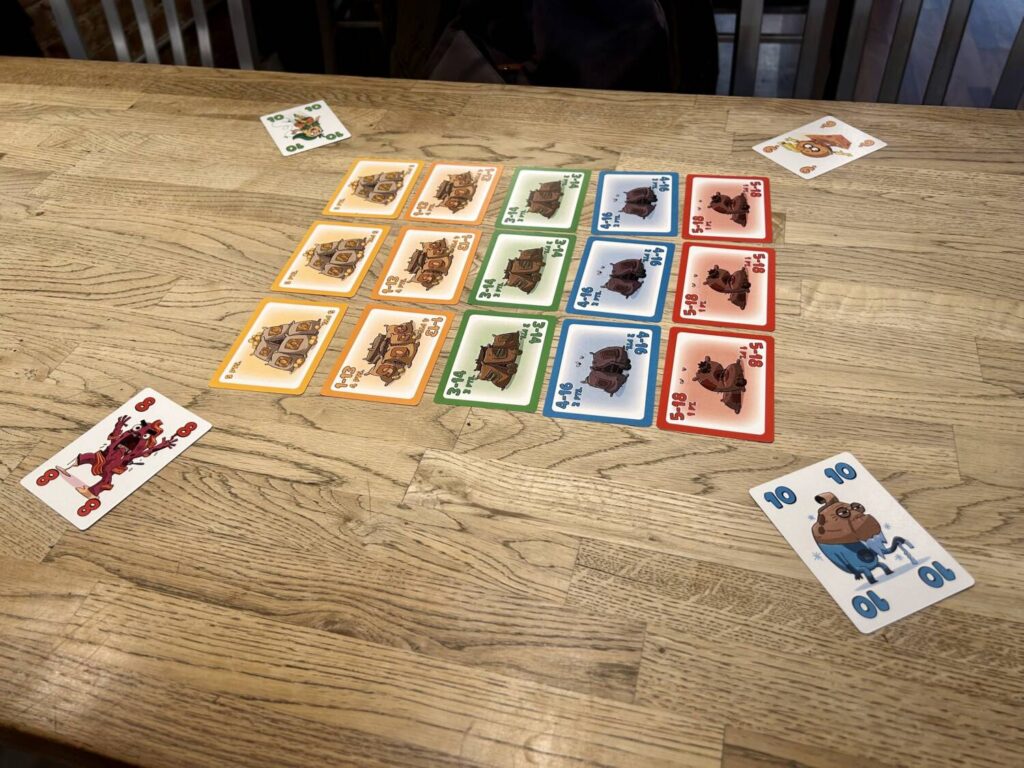
There are only three scoring cards per color. If any suit runs out, the winner takes a golden card instead, which is worth a staggering five points. If any single player runs the table, it can really add up. Rounds last until either your hands are empty (unlikely) or any given player cannot play a card (extremely likely). You play one round per player, and the winner is the player with the highest score.
The Bum Hand
There’s a lot in the design that makes sense. The tiebreaker rule—when two or more cards tie for highest value, the last one played wins—keeps a player with a bunch of high cards from barging out into the lead. Furthermore, the three highest cards in the game lose the trick if one of the three lowest cards in the game gets played. You never feel entirely confident about what to do with your hand.
Great rounds are well and truly great. Players block one another from scoring off valuable suits. Nothing quite like spite-dumping a low card early in a trick, just to make sure nobody else gets to take a five-point card. A player who miscounted will bound out with a 17 or 18 in red, only to fall into despair as a humble 2 makes an appearance. This is the magic that great trick-takers are made of. From a design perspective, an easy A for Potato Man.
That’s not always reflected in the quality of the play experience, though. Most rounds are fine enough, and most hands aren’t particularly interesting. Maybe that’s the issue: it’s far too easy to end up with a bum hand in Potato Man. Theoretically, with card distribution being what it is, the issue of the Bum Hand shouldn’t affect Potato Man more than any of its kin. Anecdotally, I would tell you it does.
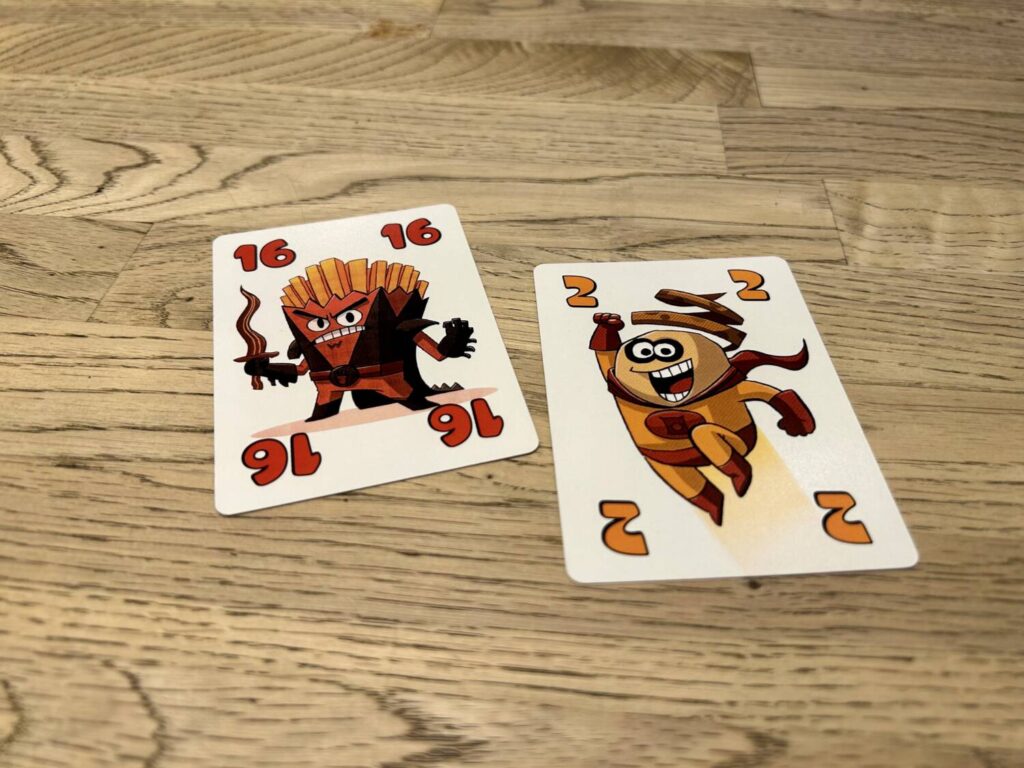
The Bum Hand is, truly, inevitable. It’s the mathematics of random distribution. Every trick-taking game takes a different approach to mitigating its impact. The most common solution is bidding, which Potato Man doesn’t have. I’m not sure I’d want it to, really. It’s a bit too chaotic to support bidding in any meaningful way. Even if a trick-taker doesn’t have bidding, there’s usually some mechanism that works to alleviate bumhanditis. Needing to follow in the same suit to win, for example, means that a hand of low cards in a single suit or two can be made to work. Here, the high card always wins. If you don’t get any high cards, you’re not likely to win. You’ll have to content yourself with running interference plays for an entire round, which isn’t the most satisfying thing in the world.
After a lackluster first game or two, I have grown to like Potato Man. There have been occasional rounds that I’ve loved, but never an entire game. The closest I’ve come to loving the whole thing was in my single three-player game. You remove one of the four suits to keep the distribution even, and I would tell you the decision space tightened up as a result. The Bum Hands (I have all their albums) didn’t bum me out quite as much.
Potato, Potato
The world is full of trick-taking games, with more coming out every day. I own dozens of the things, but you really only need one or two. It’s about finding just the right flavor for you. You want that classic feel? Oh Hell. You like things a bit chaotic? Cat in the Box. You want to be a little mean? Seas of Strife. You enjoy trying to thread a needle? Marshmallow Test. You like things a bit chaotic, a little mean, and you like threading a needle? Ghosts of Christmas. There truly is something for everyone, unless you don’t like trick-taking games (even then, I would argue for 12 Chip Trick).
In such a crowded market, I don’t think Potato Man quite earns its place. The experience is a little too uneven. That’s a shame, because I like a lot of what it’s doing. I love the idea of the scoring system, and how it encourages certain styles of play. It wouldn’t surprise me if a game of Potato Man with seasoned players (you can come up with your own home fries joke) were excellent. I can see the opening for that. I’m just not convinced anyone’s ever fitting through it.
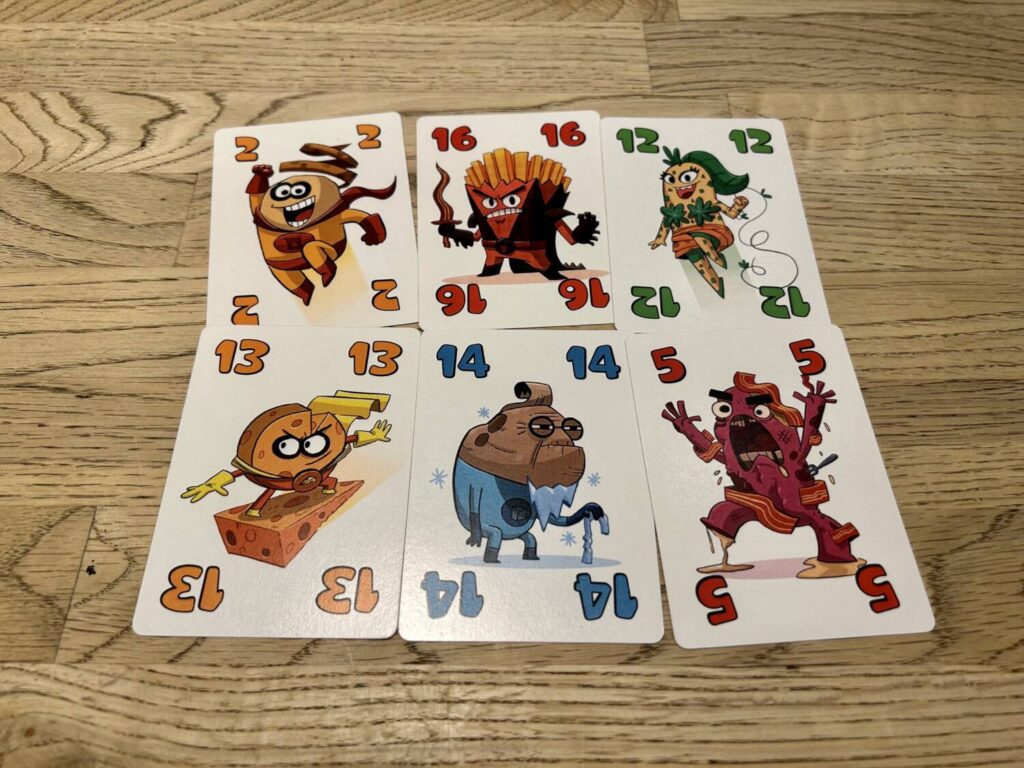


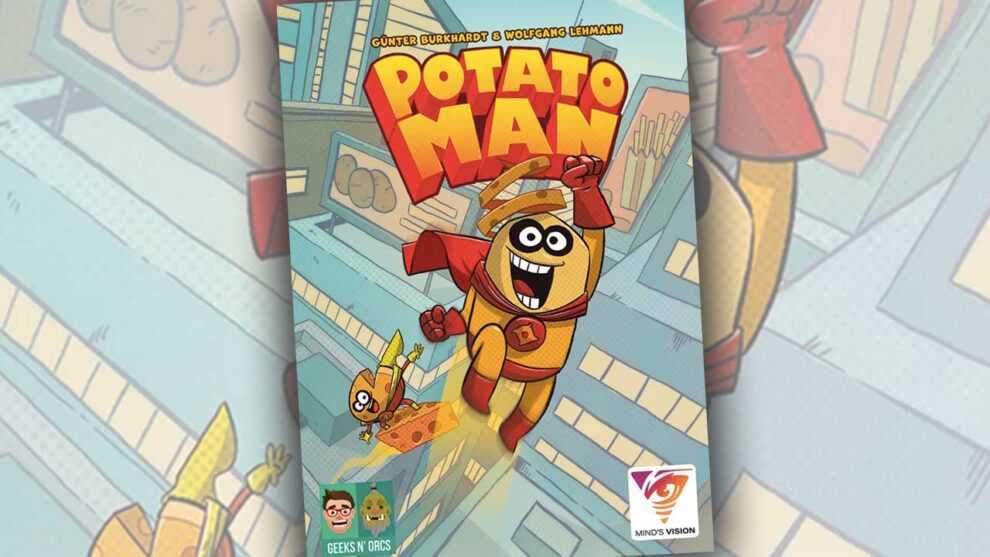

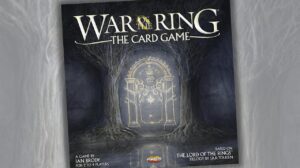







This game needs to be reviewed by an experienced trick-taking game fan. While I understand where your negatives are coming from, they show a lack of understanding the underlying mechanics of the game OR possibly a statistically unlikely string of true bum-hands as you call them. Since you also call Cat in the Box a ‘chaotic’ trick-taker, I question your fundamentals with trick-takers.
Even though this has a “cute theme,” it is not a game that will do well with new trick-taking game players because the optimum plays are initially very opaque and require a manipulation of both standard trick mechanics as well as how to manipulate the scoring cards with an understanding of the relative suit strengths.
We’ve been playing this game since the original German release–over 10 years ago now–and we are a regular gaming group of 3 or 4 players with combined trick-taking experience of over 120 years. With a group of players of a similar skill-level, it is one of the top-tier trick-taking games.
Howdy Guy, thanks for your comments. I’ll let Andrew respond directly, but I wanted to mention that experience with a game or genre does not preclude the ability to write a review. This could be Andrew’s first time playing a trick taking game (it’s not), and his comments would still be valid, given that this was HIS experience.
Hey Guy! Thanks for reading. I always enjoy hearing other opinions on games I’ve played, particularly ones where my feelings are as muddy as they are with Potato Man.
I played five or six games over a two-week period, with a variety of players, ranging from experienced trick-taking players to relative newcomers. The bum hand issue was universally observed, and didn’t get any better with repetition. One of the hardest parts of reviewing games is knowing you cannot possibly make the kinds of discoveries and connections with a game that can only reveal themselves with time and familiarity. I do my best. I fully believe Potato Man could reveal more over time. I myself saw little to suggest that, but I say that recognizing the limitations of the review process. The other trick-takers I mentioned in this review immediately struck me as richer, more rewarding, and more entertaining experiences. So it goes.
Separate from that, for you to make the assumption that I was unimpressed by Potato Man because of inadequate skill, implying in the process that the same must be true of my play groups, is deeply condescending. It is possible to frame your opposing opinion without suggesting that the only feasible explanation is a lack of ability to understand the game. A number of people in my gaming circles are deft players, including several lifelong worshippers at the altar of Euchre. I myself have spent hundreds of hours playing trick-taking games, and look forward to spending hundreds more in the future. I am truly glad that you and your group have found so much to love in Potato Man over the years. I love whenever a game finds its home. No game can be for everyone. My lack of feeling doesn’t mean I don’t understand what it has to offer.